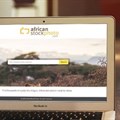Kenyan entrepreneurs create African-focused stock photo platform

1. Give us your elevator pitch.
AfricanStockPhoto is a stock image marketplace that features authentic African imagery, contributed by photographers across the continent.
2. How did you finance your startup?
To date, it’s all bootstrapped from the two co-founders’ savings. Though having started to generate revenue, we’re hoping to close a round of investment now.
3. If you were given US$1m to invest in your company now, where would it go?
Definitely catalogue growth. The most exciting aspect of our business is working with photographers across the continent to build a rich, diverse collection of imagery. We’d put that money towards working with talented studios and freelance photographers to document more day-to-day activities in the context of their home countries.
4. What risks does your business face?
Pricing is very fluid in the stock media industry; images can be sold for anything from a few US cents to many hundreds of dollars depending on the site and content. In this context, it’s really hard to identify a price point that feels like good value to both our photographers and the end customer.
5. So far, what has proven to be the most successful form of marketing?
We were featured on Product Hunt, a US tech site that showcases new startups. During the week in which we were on their homepage, we had a record number of visitors and image sales. Organically reproducing this effect hasn’t been easy. But we’ve also had some success with search engine advertisement and our blog.
6. Describe your most exciting entrepreneurial moment.
Without a doubt, this was our first sale. At the time AfricanStockPhoto was still a side-project that we hoped to be able to switch to working on full-time, but that was by no means guaranteed. Then a customer from Malawi checked out with one of our images (even better, it was an image taken by Dicky, one of the co-founders). It was a very small moment of validation and marked the beginning of a long journey, not the end. But if you don’t celebrate those moments, there is no point being an entrepreneur.
7. Tell us about your biggest mistake, and what have you’ve learnt from it?
We spoke to many people to validate our business idea before diving into it. Creatives who work with stock imagery every day were all really excited by our idea, but once it was live we discovered the decision-making dynamics in many creative agencies that prevent them from being able to sign up to a new service, and this has meant our sales to agencies have been slower than we hoped. It turns out that we spoke to a lot of similar-minded people in the same role, not getting a variety of perspectives. Deliberately seeking out different perspectives in future is one of the main learnings so far.
8. In addition to your own industry, name one untapped business opportunity in Africa.
When we work from home it’s always depressing how few healthy, affordable lunch options are available for delivery. Food delivery services have largely focused on western fast food, which is generally both unhealthy and too expensive for regular consumption. I think there’s a huge opportunity to deliver home-cooked, healthy, traditional African food, with the quality of service and packaging, reliability, etc. that fast-food services now have.
Source: How we made it in Africa

How we made it in Africa, established in April 2010, is an award-winning online business publication aimed at African business people as well as foreign investors with an interest in the continent.
Go to: http://www.howwemadeitinafrica.com























